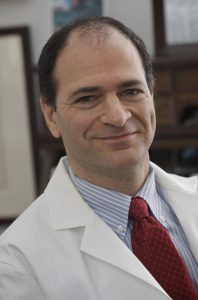Last updated on
Research Report: CIRT
It is well known in the medical community that inflammation can lead to heart disease. Now, the Cardiovascular Inflammation Reduction Trial (CIRT) is investigating whether stopping inflammation will lead to lower amounts of cardiovascular events.

“Inflammation helps your body fight off infection and other foreign threats. It does that through the immune system and it’s critically important to have an active immune system to survive,” explained Dr. Paul Ridker, CIRT trial chairman and director of the Center for Cardiovascular Disease Prevention at Brigham and Women’s Hospital. “But, an overactive immune system can lead to early onset heart disease and early onset diabetes. So, what we’re trying to do is find out if mildly reducing that overall inflammatory response will dampen down the risk of heart attack and stroke.”
The Inspiration Behind CIRT
“We’ve known for 50 years that half of all strokes and half of all heart attacks occur among people who have fairly normal cholesterol levels,” remarked Dr. Ridker, explaining the mystery behind cardiovascular disease. “So, while cholesterol is a major risk factor for heart disease, it can’t explain everything.”
CIRT is inspired by the inflammatory hypothesis of atherothrombosis. Researchers are looking to uncover the relationship between inflammation and atherothrombosis.
“With regard to the translation of inflammation biology to practice, clinical evidence from dozens of prospective cohort studies demonstrates that inflammatory biomarkers like high sensitivity C-reactive protein (hsCRP) independently predict vascular risk with a magnitude of effect at least as large as that of blood pressure or cholesterol,” explained CIRT researchers on the study’s website. “However, while the attributable vascular risk associated with inflammation is large and while animal models using targeted anti-inflammatory therapies have shown promise, it remains unknown whether inhibition of inflammation per se will lower vascular event rates.”
One phenomenon Dr. Ridker has observed is that patients who lower their bad LDL cholesterol levels using statins can be left with persistently elevated hsCRP levels, which indicate inflammation and a high risk for recurrent cardiovascular events. It is these patients who are being targeted in CIRT.
“We’ve coined a new term, ‘residual inflammatory risk,’ that is separate and distinct from ‘residual cholesterol risk.’ For example, when we give patients a cholesterol lowering drug like a statin, many of them remain at high risk because their hsCRP remains quite high,” explained Dr. Ridker. “More LDL reduction is not going to help these patients, because the problem they have is an overactive inflammatory response. These are the patients who are being enrolled into the CIRT trial.”
Developing a method to help these patients with residual inflammatory risk would have large implications for clinical practice, as they are more common than many believe. Dr. Ridker estimates that for every one patient dealing with residual cholesterol risk, there are two patients grappling with residual inflammatory risk.
Trial Design
CIRT is a randomized, double-blind, placebo-controlled, event-driven trial. Researchers are using low dose methotrexate, a safe and highly effective medication that has long been used to treat rheumatoid arthritis and to lower inflammation in patients. Patients in the trial receive either 15 to 20 mg of methotrexate a week or they are given a placebo. Researchers are then measuring the rate of myocardial infarction (heart attack) and stroke in participants. Participants are all patients who have coronary artery disease and type 2 diabetes or metabolic syndrome. These healthcare issues are associated with patients experiencing a “pro-inflammatory” response.
“My own research group 20 years ago published data showing that markers of inflammation, like hsCRP, predict future cardiac risk independent of cholesterol and other risk factors. There’s elegant basic biology telling us that inflammation is crucial to atherothrombosis,” said Dr. Ridker. “We also showed nearly 20 years ago that statin drugs, which lower cholesterol, also lower inflammation. The big unknown has been with whether or not lowering inflammation itself will also lower tcardiac event rate.”
Unlike many trials today, CIRT is federally funded by the National Heart, Lung, and Blood Institute and not by a pharmaceutical company.
“This is a trial being run on federal funding. There’s no pharmaceutical company here,” said Dr. Ridker. “We at the Brigham are doing everything. We are the drug supply, the data monitoring system, and the recruitment center. We are the enrollment center. We’re the national data center.”
“CIRT is a phenomenal study that we were very lucky to have sponsored by the NIH, letting us directly ask the question, ‘will lowering inflammation lower cardiovascular event rates in high risk patients who already have known heart disease?’” he continued. “The way we’re going to do that is by using a very inexpensive drug, low dose methotrexate, that is widely used, very safely, to treat rheumatoid arthritis. We’re giving it to patients who don’t have rheumatoid arthritis, but they have a background of underlying atherosclerotic heart disease.”
Challenges to CIRT
As with any trial, CIRT deals with certain challenges. One of the biggest challenges CIRT researchers face is poor patient education.
In addition to rheumatoid arthritis, high doses of methotrexate are used to treat cancer. This has spooked some patients, driving them to avoid participating in the trial.
“Low dose methotrexate has been in use for 50 years. It is well known to be safe and tolerated well at the very low doses we’re giving for this trial. Our biggest problem has been a misperception by many patients that we’re using much higher doses of methotrexate that are often used to treat cancer,” explained Dr. Ridker. “That misperception has led to several patients either declining to participate or to not take their drug once they’re in the trial.”
“That’s unfortunately very poor education of the patients, because the doses we’re using here are very, very low and quite safe. Unfortunately, many patients are not aware of the difference between the low dose and the high dose.”
Patient compliance is also a challenge that CIRT must deal with, though it is a common challenge for trials and patient care alike. CIRT just randomized their 4,000th patient out of the 7,000 needed. Long-term adherence to the treatment is key for the trial’s success.
“Compliance with the study medications is another issue that is really important to us,” Dr. Ridker remarked. “We need people to stay the course. Any therapy designed to lower the risk for heart attack and stroke needs to be taken week in and week out, year in and year out.”
Potential Impact of CIRT
CIRT has the potential to greatly impact how doctors understand heart disease.
“If CIRT is a positive trial, it will prove the inflammation hypothesis of heart disease,” said Dr. Ridker. “That’s critical because that will make all of us move beyond just cholesterol, as the only driver of this disease. If that’s true, we’ll have a remarkable new way of approaching the entire disease process. It would be ground breaking and revolutionary.”
“The second thing is, low dose methotrexate is a generic drug that is very inexpensive,” he went on to explain. “It’s pennies a week. So, if this proves to be effective, it’s also going to be very cost effective.”
However, Dr. Ridker stressed that the CIRT has not concluded yet and the effects of methotrexate on trial patients is not yet known.
“I would not want anyone to mistakenly take the drug now,” he said. “We have to do the trial and we have to find out if it will lower heart disease events and what the side effects are. We don’t know that now.”
Continued Recruiting
Dr. Ridker and his team are still looking for patients to enroll in CIRT.
“Patients with known coronary artery disease and either diabetes or metabolic syndrome are eligible for the trial,” said Dr. Ridker. Anyone interested in the trial should visit www.thecirt.org or call CIRT’s toll free line 855-437-9330.
There are many benefits for patients participating in clinical trials, according to Elaine Zaharris, CIRT Project Manager.
“They get more information about their disease,” she said, explaining that trial patients receive close monitoring and more one on one interaction with doctors.
Dr. Ridker would like to extend his thanks to Dr. Samuel Goldhaber for running one of his top enrolling sites.
“I have no shortage of appreciation for everything that Sam does,” he said.
He also wants to thank all of the patients currently enrolled in CIRT. Without them, none of this groundbreaking research would be possible.



